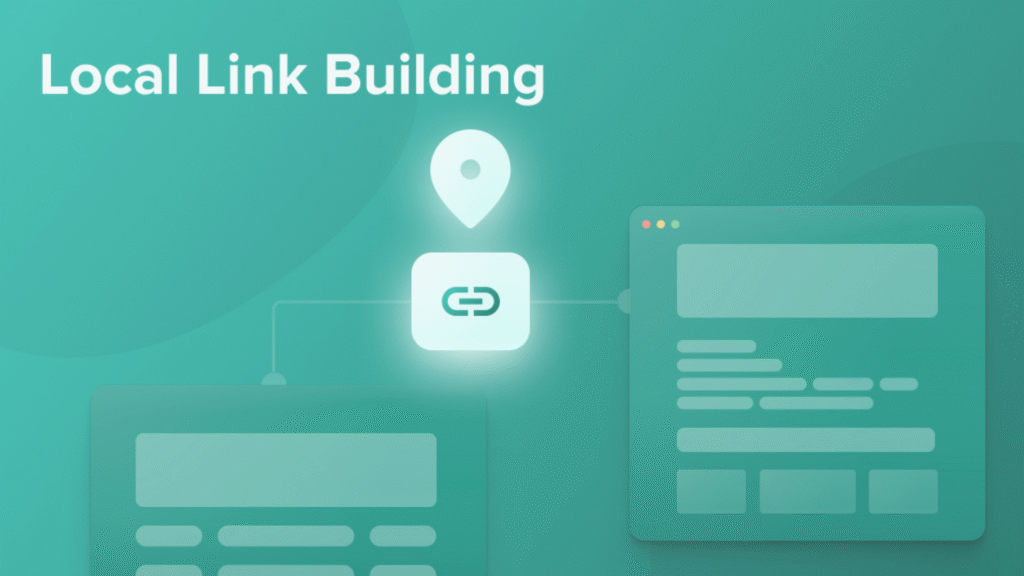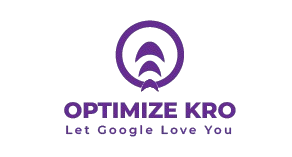The shift toward electric vehicles (EVs) is growing stronger every year, and with that, the demand for charging infrastructure continues to rise. As a charge point operator (CPO), ensuring that your charging stations are visible to potential customers is paramount to your success. That’s where local search engine optimization (SEO) comes in.
In this detailed guide, we’ll dive deep into how charge point operators can leverage local SEO to boost visibility, attract more customers, and stay ahead of the competition. We will explore effective strategies, actionable tips, and best practices tailored specifically for CPOs.

What is Local SEO?
Local SEO is the process of optimizing your online presence to rank higher in local search results. This is particularly important for businesses like charge point operators, who rely on location-based searches. When potential customers search for EV charging stations in their area, local SEO ensures that your business appears prominently in those results.
Local SEO is designed to help businesses attract more customers from relevant local searches. It includes various strategies such as optimizing Google My Business, building local citations, and using location-based keywords on your website.
Why is Local SEO Important for Charge Point Operators?
For charge point operators, local SEO is essential for the following reasons:
- Increased Visibility: EV drivers typically search for charging stations that are close to their location. Appearing in local search results helps attract nearby customers, increasing foot traffic and usage of your charging stations.
- Improved Local Authority: By optimizing your site for local search terms, you build authority and trust within your geographical area, which can lead to increased bookings and higher conversion rates.
- Competitive Edge: Many charge point operators may not fully leverage local SEO strategies, giving you an opportunity to outperform them in local search rankings. Being visible on search engines is key to remaining competitive.
- Better User Experience: Local SEO strategies, such as accurate Google Maps listings and helpful content about nearby attractions, provide a better user experience for potential customers.
Key Local SEO Strategies for Charge Point Operators
To optimize your website for local SEO, follow these key strategies tailored specifically to charge point operators.
Optimizing Google My Business (GMB)
Google My Business (GMB) is one of the most powerful tools for local SEO. GMB allows charge point operators to manage their online presence, show up in local search results, and provide essential information such as hours, location, and contact details.
Tips for Optimizing Your GMB Profile:
- Complete Your Profile: Fill in every section, including business name, address, phone number (NAP), website, hours of operation, and description. This is critical for local SEO.
- Add Photos: Showcase your charging stations with high-quality photos. This helps build trust with users and can improve your ranking.
- Use Keywords in Your Description: Include relevant local keywords such as “EV charging stations in [City]” or “fast charging points in [Neighborhood].”
- Update Your Information Regularly: Ensure your business hours, location, and services are always up to date.
- Use Posts: Regularly publish posts on GMB about promotions, new charging locations, or any news related to your services. Google rewards active profiles.
Local Keyword Research
Effective keyword research is a cornerstone of any successful SEO strategy. For charge point operators, this means understanding the specific search terms potential customers are using when looking for charging stations.
Tools for Local Keyword Research:
- Google Keyword Planner: This tool allows you to discover local keywords and their search volumes.
- SEMrush and Ahrefs: These tools provide insights into keyword difficulty and search volume in specific locations.
- Google Trends: Use Google Trends to identify trending terms related to EV charging stations in your region.
Keyword Ideas for Charge Point Operators:
- “EV charging stations near me”
- “Electric vehicle chargers in [city name]”
- “Fast charging points in [area or neighborhood]”
- “Public electric car charging locations”
Focus on long-tail keywords (phrases with three or more words), as they are more specific and often have less competition.
On-Page SEO for Local Optimization
On-page SEO refers to the techniques used on your website to improve your search rankings. For local SEO, you need to ensure that your website content is optimized for both users and search engines.
On-Page SEO Tips:
- Title Tags and Meta Descriptions: Include location-specific keywords in your title tags and meta descriptions. For example, “EV Charging Stations in [City Name] | [Your Business Name].”
- Use Local Keywords in Content: Incorporate local keywords naturally throughout your content, especially in headings (H1, H2, H3) and body text.
- Add Location Pages: If you operate in multiple areas, create dedicated pages for each location with relevant information like operating hours, nearby landmarks, and specific services offered.
- Optimize for Mobile: Many users search for charging stations on their mobile devices. Ensure your website is mobile-friendly to provide a smooth user experience.
- Add Schema Markup: Use local business schema markup to help search engines understand the context of your content and improve your visibility in local search results.
Building Local Citations and NAP Consistency
A citation is any online mention of your business’s name, address, and phone number (NAP). Consistent citations across various directories (such as Yelp, Yellow Pages, and local chambers of commerce websites) are crucial for improving local search rankings.
Steps for Building Citations:
- List Your Business on Local Directories: Submit your business information to local directories and online maps, including Google Maps, Apple Maps, and Bing Places.
- Ensure NAP Consistency: Your name, address, and phone number should appear exactly the same across all platforms. Inconsistent NAP data can hurt your local SEO efforts.
- Claim Your Listings: Don’t forget to claim and optimize your listings on local websites like Yelp, Foursquare, and industry-specific directories.
Local Link Building
Local link building is the process of getting other local websites to link to your site. This helps increase your website’s authority and improve local search rankings.
Strategies for Local Link Building:
- Sponsor Local Events or Charities: Partnering with local organizations can generate backlinks from their websites.
- Collaborate with Local Influencers: Reach out to local bloggers or influencers in the EV or sustainability niches for collaboration opportunities and backlinks.
- Submit Guest Posts to Local Blogs: Writing guest posts for local news outlets or blogs can help establish your authority and earn backlinks.

Content Marketing Strategies for CPOs
Effective content marketing is a great way to boost your local SEO and engage with your target audience. As a charge point operator, you can create valuable content to address customer concerns and promote your services.
Content Ideas for CPOs:
- Blog Posts on EV Topics: Write informative blog posts about electric vehicles, the benefits of charging at public stations, and the future of EV infrastructure.
- Location-Based Guides: Create content that helps users find the best charging stations in their city or neighborhood. Include nearby attractions, restaurants, and points of interest to add value to the content.
- Customer Testimonials: Share stories and testimonials from satisfied customers to build trust and authority in your local area.
How to Use Reviews to Boost Local SEO
Online reviews are crucial for local SEO. Positive reviews not only improve your reputation but also contribute to better search engine rankings.
Tips for Getting More Reviews:
- Encourage Satisfied Customers to Leave Reviews: Send follow-up emails or text messages to customers asking them to leave feedback.
- Respond to Reviews: Show that you value customer feedback by responding to both positive and negative reviews in a professional manner.
- Use Review Platforms: Leverage platforms like Google, Yelp, and Trustpilot to gather reviews and improve your online presence.
What Our Clients Say
Trusted by contractors and local businesses for proven Local SEO Services.
John M. – General Contractor
“These guys transformed my Google Maps ranking. More calls, more local leads, and better visibility!”
Sarah L. – Roofing Business
“Within 3 months, my business went from page 3 to the top 3 listings. Highly recommend their Local SEO service!”
David K. – Plumbing Services
“Affordable and effective SEO. My local service calls doubled in less than 90 days.”
Measuring and Tracking Success
To ensure your local SEO efforts are paying off, it’s essential to track your performance. Use the following tools to measure your SEO success:
- Google Analytics: Track website traffic, user behavior, and conversions from local search queries.
- Google Search Console: Monitor how your website performs in local search results and track keyword rankings.
- GMB Insights: Get data on how users find your business on Google and what actions they take.
FAQs
What is the importance of local SEO for charge point operators?
Local SEO helps increase visibility for your charging stations in search engines, especially for location-based queries, driving more customers to your business.
How can I improve my GMB listing?
Ensure that your GMB profile is complete with accurate NAP details, photos, posts, and reviews. Consistently update your business information and engage with customers through posts.
What are the best local keywords for charge point operators?
Keywords like “EV charging stations near me,” “electric vehicle chargers in [city name],” and “fast charging stations” are highly relevant for local searches.
Conclusion
Local SEO is an invaluable tool for charge point operators aiming to increase their visibility and attract more customers. By optimizing your Google My Business profile, focusing on local keywords, building citations, and implementing strong content marketing strategies, you can set yourself apart from the competition and increase foot traffic to your charging stations.

Gulfam Qamar is a seasoned Local SEO expert with a proven track record of helping businesses boost their online visibility and dominate local search results. With deep expertise in Google Business Profiles, on-page optimization, and local citation strategies, Gulfam helps brands connect with nearby customers and grow sustainably. When he’s not optimizing websites, he’s sharing actionable SEO tips and insights to empower small businesses in the digital space.

